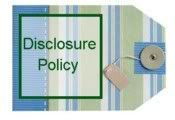Meniere's Syndrome
Anyone who reads my blog has had to listen to me complain and whine about my ears, and my allergies. I thought I would put this article I found on my blog. You can find this article on the web by just putting Meniere's Disease in a search engine and up it comes. This article will explain everything I am experiencing! I have this disease. The words in bold are things that relate to me the most, and my own words are bold and in italics.
It is named after the French physician Prosper Ménière, who first reported that vertigo was caused by inner ear disorders in an article published in 1861.
FROM THE WEB
Meniere's disease is a vestibular disorder that produces a recurring set of symptoms as a result of abnormally large amounts of a fluid called endolymph collecting in the inner ear.
The prevalence of Meniere's disease is difficult to assess. One population study found that 15.3 per 100,000 individuals develop Meniere's disease annually. Of these, one-third eventually develop the disease in the second ear as well. (I have it in both ears).
The exact cause of Meniere's disease is not known. Theories include circulation problems, viral infection, allergies, an autoimmune reaction, ( This is me) migraine, and the possibility of a genetic connection. (My uncle had this disease for most of his life). Experts also aren't sure what generates the symptoms of an acute attack. Some people with Meniere's disease find that certain triggers can set off attacks, including stress, overwork, fatigue, emotional distress, additional illnesses, pressure changes, certain foods, and too much salt in the diet. (These things definitely affect me). I just returned from a 15 day trip through the midwest to the east coast where it is humid. And I experienced many pressure changes on the airplanes and driving through the different elevations of the country, and I ate at restaurants several times a day. And they over salt everything!
Attacks can last from 20 minutes to 24 hours. They can occur many times per week; or they can be separated by weeks, months, and even years. The unpredictable nature of this disease makes it difficult to tell how it will affect a person's future. Symptoms can disappear one day and never return, or they might become so severe that they are disabling. (Symptoms are with me most of the time, and it can be very disabling).
Symptoms: During an attack of early-stage Meniere's disease, the main symptoms are spontaneous, violent vertigo, fluctuating hearing loss, ear fullness, and/or tinnitus. (Tinnitus is ringing of the ear. Mine is a roar)! Following the attack, a period of extreme fatigue or exhaustion often occurs, prompting the need for hours of sleep. The periods between attacks are symptom-free for some people and symptomatic for others. (I am symptomatic. And no ones tries harder not to be).
Late-stage Meniere's disease refers to a set of symptoms rather than a point in time. Hearing loss is more significant and is less likely to fluctuate. Tinnitus and/or aural fullness may be stronger and more constant. Attacks of vertigo may be replaced by more constant struggles with vision and balance, including difficulty walking in the dark and occasional sudden loss of balance. (I experienced terrible vertigo for years. It has mostly been replaced with these other problems, except I have had difficulty walking in the dark since I was very young). Sometimes, drop attacks of vestibular origin (Tumarkin's otolithic crisis) occur in this stage of Meniere's disease.
Treatment: In the United States, the most conservative long-term treatment for Meniere's disease (aimed at reducing the severity and number of attacks) involves adhering to a reduced-sodium diet and using diuretics, or "water pills." (I've had to be on water pills since I was in my early 20's). The goal of this treatment is to reduce inner ear fluid pressure. Some physicians, more commonly outside of the United States, also weigh the potential efficacy of using betahistine HCl (Serc) as a vestibular suppressant for Meniere's disease.
Medications that are used during an attack to reduce the vertigo, nausea, and vomiting include diazepam (Valium), promethazine (Phenergan), dimenhydrinate (Dramamine Original Formula), and meclizine hydrochloride (Antivert, or Dramamine Less Drowsy Formula). (None of the were of much help to me). Vestibular rehabilitation therapy is sometimes used to help with the imbalance that can plague people between attacks. Its goal is to help retrain the ability of the body and brain to process balance information. (This is what I was looking for. I got on the web today to see if there is anything new I haven't tried).
Another recently introduced, conservative treatment approach employs a device to deliver a series of low-pressure air pulses designed to displace inner ear fluids. The use of this device is approved for general use by the U.S. Food and Drug Administration (FDA) and is currently undergoing clinical trials in the United States. (I'm going to ask the doctor about this also).
For the 20-40% of people who do not respond to medication or diet, a physician may recommend a chemical labyrinthectomy, which destroys vestibular tissue with injections into the ear of an aminoglycoside antibiotic (gentamicin). Another less conservative treatment is surgery to relieve the pressure on the inner ear (although this is not as widely used now as it was in the past) or to destroy either the inner ear or the vestibular nerve, so that balance information is not transmitted to the brain. (My uncle Jimmy did one or more of these and didn't have any luck. Maybe things have improved).
From VEDA publication F-4, Meniere's Disease. VEDA also publishes the book Meniere's Disease—What You Need to Know (publication B-7).
















